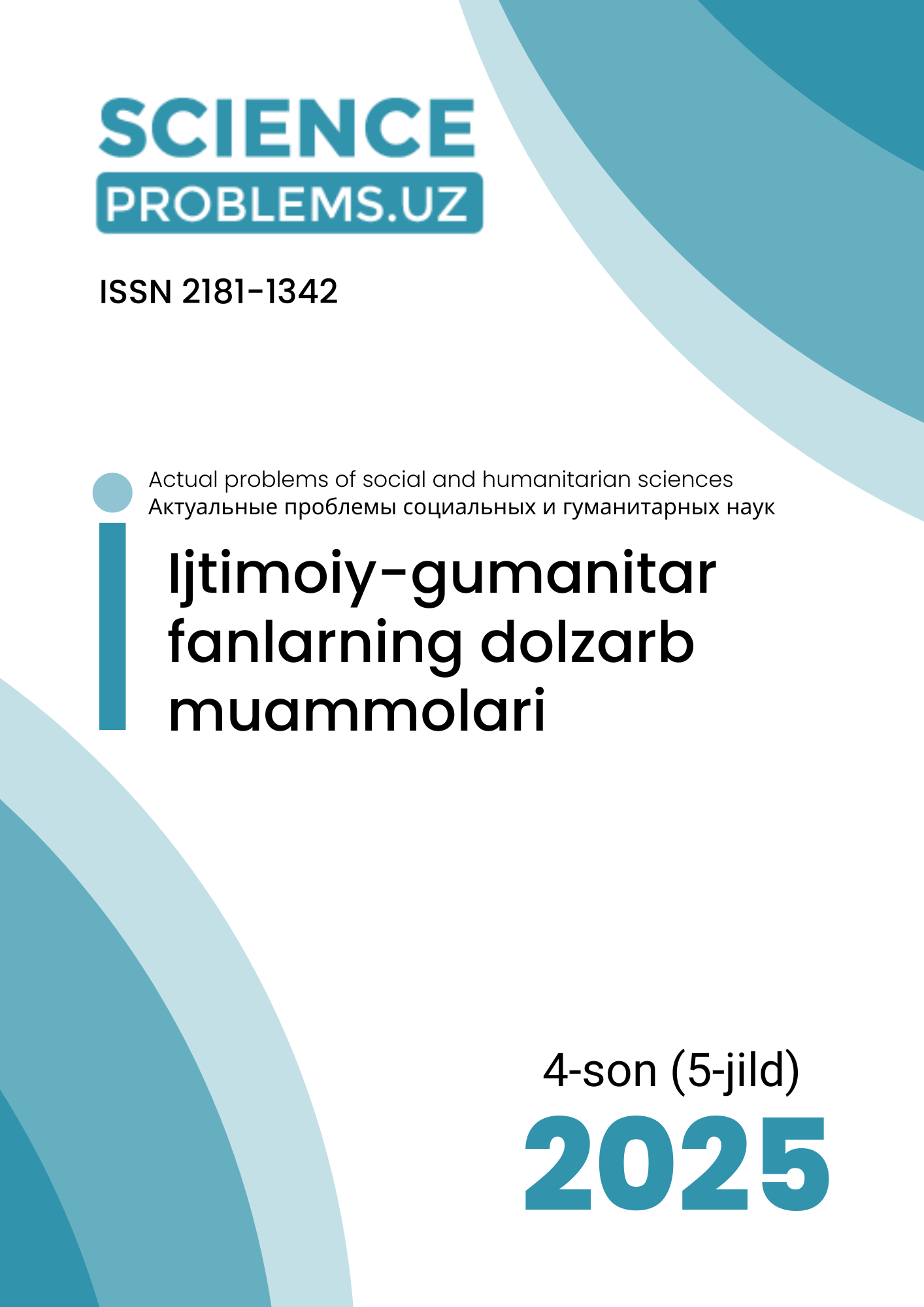THE PHILOSOPHY OF POLITICS AND GOVERNANCE IN ISLAMIC TEACHINGS
DOI:
https://doi.org/10.47390/SPR1342V5I4Y2025N32Keywords:
Islam, political philosophy, power, law, state governance, fiqh, hadith, justice.Abstract
This article conducts an in-depth analysis of the influence of Islamic teachings on the philosophy of politics and power in Central Asia. The widespread adoption of Islam in Central Asia during the 7th-8th centuries led to a transformation of the region's political, social, and cultural structure, resulting in the formation of an Islamic system of governance. The article particularly emphasizes that Islamic Sharia and Fiqh serve as the moral and legal foundation for state governance, and that the primary aim of power in Islam is to maintain stability and order within society.
References
1. Gʻazzoliy. Kimiyoi saodat. T.: “Kamalak”. 1995. 65-b.
2. Gʻazzoliy. Kimiyoi saodat. T.: “Kamalak”. 1995. 64-65-b.
3. Темур тузуклари. Масъул муҳаррир Тўлқин Ҳайит. – “Янги китоб” МЧЖ. Т. 2019. 202-204-бетлар
4. Mamanov A. Milliy mentalitet: xususiyat va omillar. Samarqand. 2015. 70 b.
5. Alisher Navoiy. Mahbub ul-qulub. -T.: Gʻofur Gʻulom nashriyoti, 1983. 5-b.
6. Husayn Voiz Koshifiy. Axloqiy muhsiniy. – T.: “Oʻzbekiston”, 2010. 47-b.
7. Бобур З.М. “Бобурнома”. Т-Шарқ, - 2002. 267 б.
8. Mamanov J. Yoshlar ma’naviy madaniyatini shakllantirishda milliy mentalitetning o‘rni. Falsafa fanlari b.f. doktori disser. 2023. 56 b.








